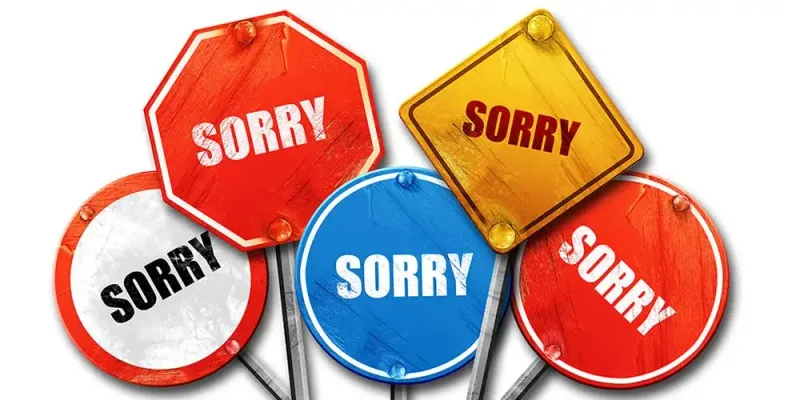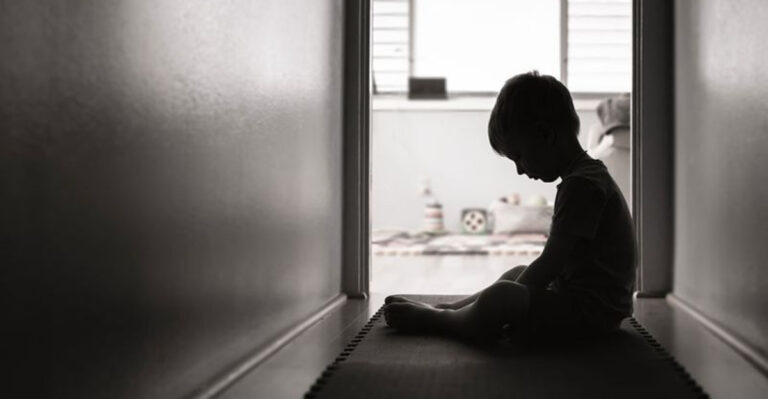17 Unusual Mannerisms That Reveal Someone Is Carrying Trauma
You know when you spot someone across the room and you get this gut feeling that they’re carrying something heavy? Not the visible kind—the kind that sits behind the eyes or slips out in a laugh that’s a little too late.
Trauma has a way of sneaking into our mannerisms, twisting up the ordinary until it feels strange, even to us. If you’ve ever wondered why you freeze up, why you can’t relax even on vacation, or why you explain yourself ten times more than anyone else in the room—yeah, you’re not alone.
Let’s talk about the stuff no one posts about. The little ways trauma leaks out, even when we’re sure we’ve got things under control. I want you to see these not as flaws, but as trail markers—proof that your mind found ways to survive and keep going.
Here are seventeen unusual mannerisms that can quietly shout: “Hey, I’ve been through some things.”
1. Delayed Emotional Responses

You ever had a moment where everyone’s already moved on, but you’re just now getting the punchline? That’s delayed emotion—the inside clock runs behind. Sometimes it takes hours after a fight to realize you’re actually angry, or you find yourself crying about something that happened last week.
It’s not about being slow. It’s more like your feelings got rerouted, or your brain learned to protect you by buffering everything. Other people might call it spacey, but it’s really survival.
I remember laughing at a joke way after everyone else, then feeling the burn of being seen as “off.” It took me years to realize my body just wasn’t ready to feel in real-time. If this is you, you’re not broken—you’re still catching up with yourself.
2. Constant Apologizing

Ever notice how sorry slips out of your mouth like a nervous tic? You say it when you bump into a chair, when someone else is late, heck, sometimes even when the weather shifts.
People might joke that you’re Canadian or just overly polite. But the truth? Apologizing this much is a survival skill for people who grew up feeling like they had to keep the peace.
It’s not about taking responsibility—it is about safety, about making sure no one got mad enough to make things worse. If you’re tired from saying sorry all day, you’re not alone. And you don’t owe anyone an apology for that.
3. Avoidance of Social Interactions

There’s a special kind of loneliness where you feel safer alone than in a crowded room. Some people call it introversion, but for you, it might be a shield.
It’s easier to make excuses, to cancel plans, or to just never say yes. No drama, just distance.
This isn’t about hating people—it’s about self-preservation. When you’ve been hurt before, the idea of small talk or group energy feels exhausting, not energizing. You’re not antisocial. You’re just protecting the parts of you that still heal in quiet.
4. Hyper-Independence

Strong. That’s what people call you, right? The one who does it all, never asks for help, and acts like she was born holding up the ceiling.
But hyper-independence is more about survival than strength. Somewhere along the way, you learned that needing someone is risky. Maybe someone let you down when it mattered, so you picked up every piece yourself.
I remember gritting my teeth through a move, insisting I could do it alone. It wasn’t pride—it was fear that help would come with strings. If you can’t let the load down, there’s nothing wrong with you. You just learned to carry it because you had to.
5. Overeating or Overdrinking

At times, hunger isn’t about food. It’s about filling a space that feels way too empty. Overeating or reaching for that extra drink becomes a way to quiet whatever’s screaming inside.
I’ve sat at the kitchen table at midnight, chips in hand, knowing I wasn’t even hungry. The silence felt too loud, and food was a lullaby. Drinks did the same—softened the edges until everything seemed manageable for a while.
People love to hand out advice: “Just eat healthy.” They don’t get it. You’re not weak—your body just tries to comfort itself the only way it knows how. You’re not alone at that table, even if it feels like it some nights.
6. Being Easily Startled

You ever jump out of your skin when someone calls your name or drops something? It’s not drama—it’s your nerves wired on high alert.
I laughed when my friend joked I was jumpy. Truth is, my body learned to be ready for anything, because sometimes “anything” meant danger. That flinch isn’t a flaw—it’s history written in muscle memory.
It’s exhausting feeling like you always wait for the other shoe to drop. But it doesn’t make you fragile. It means your survival system works overdrive, even years after the worst has passed.
7. Difficulty Trusting Others

Trust isn’t a handshake for everyone. For some of us, it’s a years-long negotiation with our own doubts.
I spent years questioning motives, waiting for the catch. If you ask too many questions or keep people at arm’s length, maybe you learned the hard way that not everyone stays or keeps their word.
It’s not cynicism—it’s self-defense. You want to let people in, but the rules you learned make it feel like unlocking a vault. There’s nothing weak about being careful with your heart.
8. Emotional Numbness

There’s a moment when even the things you love feel like wallpaper. That’s numbness—when feelings flatline and nothing gets through.
You wait for a spark, anything, but everything feels muted. Friends ask if you’re okay, but you don’t have words for something that feels like nothing.
It’s not laziness or apathy. It’s a brain that hit the “off” switch to keep from overloading. Feeling nothing is just as real as feeling everything at once. It’s a signal, not a sentence.
9. Catastrophizing

Did you ever turn an ordinary text into a full-blown disaster in your mind? Hello, catastrophizing. It’s like having a brain hardwired for worst-case scenarios.
My friend used to reread messages, sure that every delay meant disaster. Other friends called her dramatic, but they didn’t see the mental gymnastics—the way her mind built mountains out of every molehill.
This isn’t about attention. It’s about your mind prepping for storms because it’s lived through a few. It doesn’t mean you’re broken. It means you’re bracing yourself, just in case.
10. Difficulty Relaxing

Relaxing sounds easy until you try it. For some of us, it’s like settling into quicksand when you’ve always been on the run.
I tried yoga, baths, even deep breathing apps. My body just wouldn’t let go, always scanning for what’s next. Friends say “just chill,” like it’s a light switch.
Being unable to relax doesn’t mean you’re uptight. It means your body learned to survive by staying alert. Someday, safe might look like a nap or laughter. But for now, you’re just doing your best.
11. Avoidance of Physical Touch

Some wounds live in skin memory. If you flinch at hugs or shrink from casual touches, you’re not cold—you’re cautious.
I remember side-stepping hugs, hoping nobody noticed. Touch used to mean risk, not comfort. The body remembers what the mind tries to forget.
This isn’t about being unfriendly. It’s about the body’s boundaries, set in survival, not stubbornness. You’re allowed to reclaim your space, and you’re not heartless for needing that.
12. Overcompensating

You ever stayed late just to make sure no one could say you didn’t try hard enough? It’s about more than being a go-getter. It’s about outworking your ghosts.
I remember putting in extra hours, fixing other people’s messes, because failure felt dangerous. If everything looked perfect, maybe nobody would ask questions or dig too deep.
This isn’t ambition gone wild. It’s a shield—the work becomes armor. You’re not a machine, even if you act like one. Your worth isn’t measured in exhaustion.
13. Difficulty with Boundaries

Some of us grew up with doors that never locked and feelings that were never private. Setting boundaries now feels like learning a foreign language.
I’ve agreed to things just to keep the peace, then resented it for weeks. Saying no feels dangerous, like it might cost you love or safety.
If you fumble with boundaries, you’re not weak. You’re still learning how to draw the line in the sand. It’s hard, but it’s not impossible, and every awkward “no” is progress.
14. Overanalyzing Situations

Remember that time you replayed a single conversation for hours, convinced you’d ruined everything? It’s a trauma artifact, not a personality flaw.
I’ve triple-guessed texts, replayed meetings, and spun small choices into existential crises. My brain didn’t want to miss red flags, so it turned on every floodlight.
You’re not paranoid; you’re trained to find danger before it finds you. It’s exhausting, I know. But you’re not alone in the endless reruns.
15. Avoidance of Eye Contact

Eye contact is supposed to feel natural—unless it’s loaded. If holding someone’s gaze feels like walking a tightrope, you’re not alone.
Meeting someone’s gaze feels like exposure, like they might see too much or judge too quickly.
It’s not about rudeness. It’s about safety. It’s a language your body speaks to stay protected.
16. Excessive People-Pleasing

People-pleasing isn’t just about being nice. It’s about making sure everyone else is okay so you can stay safe.
Approval feels like oxygen, and disappointing people feels like a threat. If you can’t stop putting others first, it’s not because you’re selfless. It’s because somewhere along the way, you learned that your needs didn’t matter as much.
Don’t be hard on yourself! You deserve to be someone’s priority too—especially your own.
17. Over-Explaining

If you catch yourself offering a play-by-play for everything you do, you might be stuck in over-explaining mode. It comes from a place of fear—fear of being misunderstood, blamed, or accused.
I used to stack explanations like armor, hoping the more I said, the less likely someone would get angry. All it did was wear me out.
Over-explaining isn’t about being thorough. It’s about making yourself smaller to avoid conflict. If this is you, take a breath. You don’t owe anyone a dissertation on your existence.







